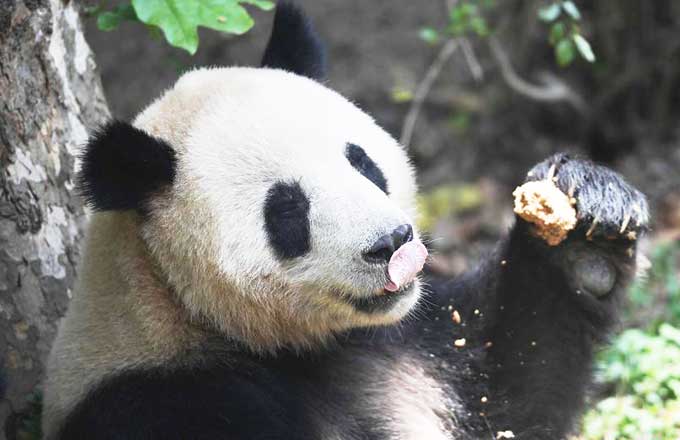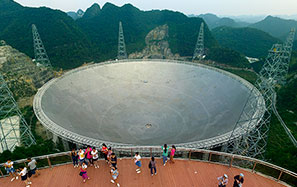Experts brew ideas for China tea
Promotion and marketing vital to win global fame, specialists say
Coffee or tea?
That is the question diners are often asked.
Many Westerners are likely to choose coffee, while Chinese prefer tea.
 |
|
A worker checks bricks of compressed tea at a factory in Menghai county, Yunnan province, on May 19. The province is a major tea producer and boasts a few national names such as Pu'er. Chen Haining / Xinhua |
But a few foreign tea experts believe tea could become increasingly popular at dinner tables around the world.
Promotion and marketing would be the key, said experts attending the 2013 International Tea Conference in Pu'er, Yunnan province, over the weekend.
The value of the beverage is well recognized in China, but not so globally.
This can be shown by production, according to Norman Kelly, president of the International Tea Committee.
Global tea production has grown 3 percent annually over the past five years, but Chinese tea has been growing 10 percent on average to maintain the nation's status as the world's biggest producer, he said.
This year, the price of Pu'er tea, a hugely popular tea produced mostly in Yunnan, almost doubled from last year in China, because of severe drought in the province for four consecutive years.
However, Pu'er tea is little known in Western markets such as the United States and Canada.
British, Japanese and Indian teas are popular in the international market. Some of their popular teas sell for nine times the price of Chinese teas, said Shen Peiping, deputy governor of Yunnan and president of the Chinese Pu'er Tea Research Institute.
Louise Roberge, president of the Tea Association of Canada, said this is not caused by a difference in quality, but mainly by branding and marketing.
She has been to China many times since 1985 and is fond of the elegantly made tea at local restaurants. However, in Canada, people have the impression that Chinese teas are of poor quality, she said.
Roberge suggested China create promotional materials to educate consumers in French- and English-speaking countries and regions. Tea shows are also a good place to exhibit Chinese products, she said.
Joe Simrany, president of the Tea Association of the USA, said Chinese tea farmers and producers must promote themselves overseas as well as the Chinese tea culture.
"Considering the high cost, China should focus on supporting several specialty teas in cooperation with local and international media. Fabulous stories about tea history and the production process in scientific approaches will be attractive for foreign consumers," she said.
 |
|
May is a busy season for tea farmers in Pu'er, Yunnan, to pick tea. Liang zhiqiang / for China DAILY |
Simrany said consumers also want to know where the tea was grown.
"In videos or newspapers, the wild and open fields for tea planting will attract more consumers as many foreigners are heavily concerned with food safety, including that the tea must be clean and healthy," Simrany said.
Shen, deputy governor of Yunnan, said China's tea industry is less competitive in global markets because it does not have big companies that are strong enough to compete outside China.
Yunnan is home to China's largest tea farms, covering 387,000 hectares, and produces 270,000 metric tons of tea a year.
However, the province has only 20 tea companies that can reap a yearly revenue of at least 100 million yuan ($16 million), he said. The province has another 118 tea companies with annual sales of at least 10 million yuan, he said.
"Many tea companies' products are similar to each other and fail to cater to various consumer needs," Shen said.
Shen said Yunnan and other major tea producing areas in China should diversify tea varieties in line with local conditions.
"Yunnan's goal is to create an industry of at least 100 billion yuan of annual revenue to restore China's leading role in the international tea market," Shen said.
Tea originated in China, which in ancient times dominated the global market.
He Jiang and Li Yingqing contributed to this story.
- Pu’er Tea Expo Garden
- Pu’er Ancient Tea Horse Road Tourist Area
- Tea prices bounce back in Jingdong
- Tea-Picking Lantern Dance of Longyan
- Watchdog blasts US IRS over 'Tea Party' targeting
- Holy land of tea
- Liuzhou to build national-level tea research center
- Ancient Tea Plantations of Jingmai Mountain in Pu'er
























